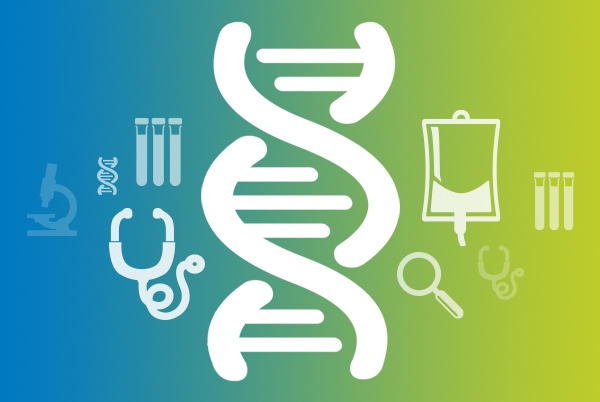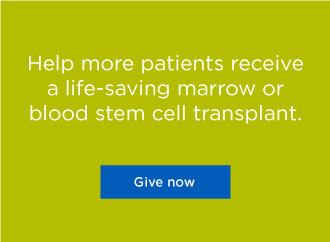The National Marrow Donor Program/Be The Match and the Center for International Blood and Marrow Transplant Research (CIBMTR) launched a precision medicine initiative to evaluate new approaches to characterize disease risk and predict prognosis after
allogeneic hematopoietic cell transplant in myelodysplastic syndromes (MDS). Allogeneic hematopoietic cell transplant is one of the original applications of precision medicine where precise knowledge of HLA (Human Leukocyte Antigen) genes is used
to match donors and recipients to optimize outcomes.
A better understanding of the broader genetic background of the disease, patient and potential donor can allow for more specific, tailored treatment by better defining who will benefit
from a therapy.
This observational study included nearly 600 donor-recipient pairs that proceeded to transplant for MDS and were reported to the CIBMTR research database. All donors and recipients had available pre-transplant research samples
in the NMDP/CIBMTR Research Repository that were whole genome sequenced and tested for genomic methylation patterns — the chemicals the body uses to turn genes on or off. The data is being studied to gain insights into the MDS disease process and
contributions of donor and recipient genetic diversity to transplant outcomes. This initiative has reported several new findings that provide insights into genetic contributions to outcomes.
In simple terms, researchers are looking at cancer
patient and donor whole genome sequencing for clues to find biomarkers that predict which patients are likely to respond well to stem cell transplant therapy and have good outcomes with minimal side effects. Finding cancer characteristics indicative
of a high likelihood of relapse after transplant could help monitor disease recurrence and perfect the timing of administration of a cellular therapy — so the right patient gets the right therapy at the right time while limiting unnecessary toxicity.
This research could produce findings in new diagnostic tests and interventions to target cancer in ways the field has not been able to before, including donor selection and treatment strategies that result in better outcomes.
The National
Marrow Donor Program/Be The Match and CIBMTR are highly committed to using the potential of precision medicine techniques to further advance the transplant and cellular therapy field.
When physicians and scientists have robust genomic information
about each party in a potential stem cell transplant match, the patient has the best chance of a successful long-term outcome.
Learn more by reviewing a comprehensive analysis and description of the study.
CO-AUTHORS
NMDP/BTM/CIBMTR: Dr. Yung-Tsi Bolon (primary SME), Tao Zhang, Caitrin Bupp and Steve Spellman
MCW/CIBMTR: Dr. Wael Saber and Dr. Paul Auer
.jpg) " />
" />


